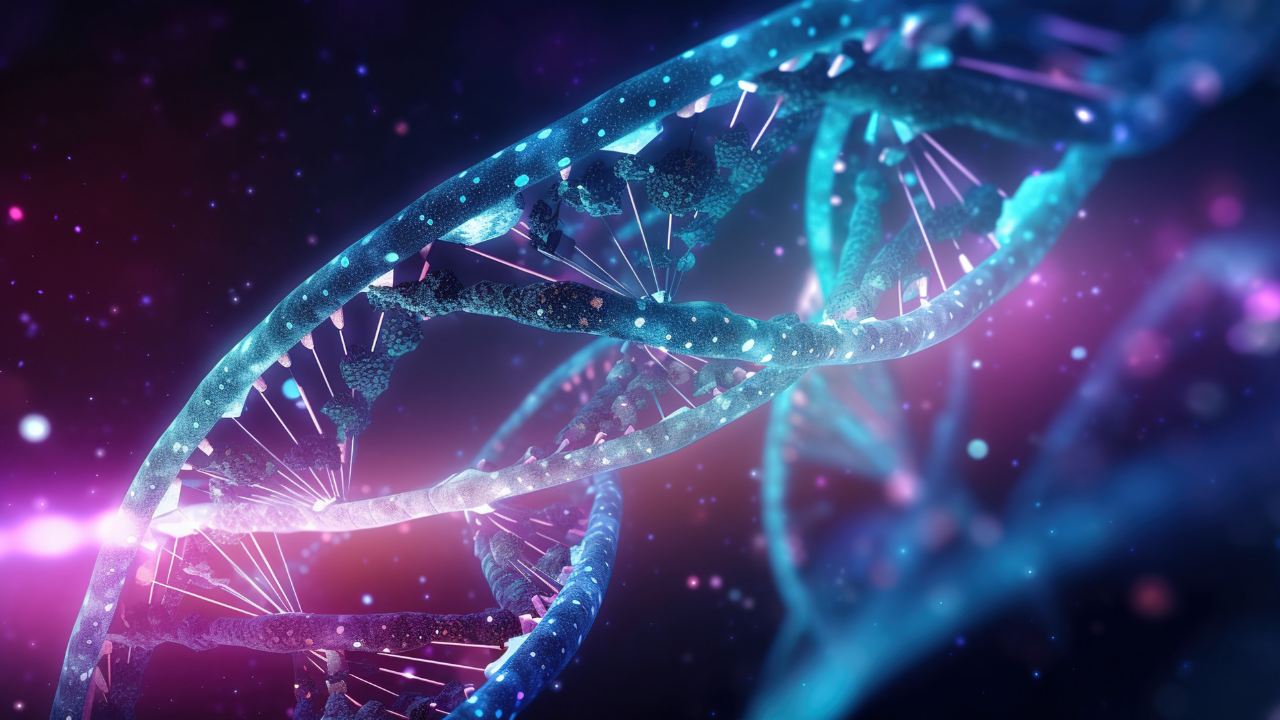预约演示
更新于:2025-10-30
SAR-299155
更新于:2025-10-30
概要
基本信息
关联
100 项与 SAR-299155 相关的临床结果
登录后查看更多信息
100 项与 SAR-299155 相关的转化医学
登录后查看更多信息
100 项与 SAR-299155 相关的专利(医药)
登录后查看更多信息
1
项与 SAR-299155 相关的文献(医药)2013-05-01·Bioorganic & medicinal chemistry letters4区 · 医学
Inhibitors of the p53/hdm2 protein–protein interaction—path to the clinic
4区 · 医学
Article
作者: Garcia-Echeverria, Carlos ; Carry, Jean-Christophe
A growing number of the elements identified in intracellular signaling events that affect cell growth and transformation are proteins that physically interact with each other via domains or specifically recognized amino acid sequences. Some of these intracellular protein-protein interactions are attractive targets for anticancer targeted therapy, but progress in this field has been compromised by the paucity of compounds with suitable biological profiles and pharmacological properties. This Letter covers salient achievements in the identification and development of inhibitors of the p53-hdm2 protein-protein interaction, and highlights different screening techniques and structure-based design approaches that may be brought to bear on the discovery and development of inhibitors of other therapeutically relevant intracellular protein-protein interactions.
2
项与 SAR-299155 相关的新闻(医药)2023-04-12
转录因子和肿瘤抑制蛋白p53是癌症中最常突变和失活的基因。目前恢复癌细胞的p53功能主要有2种策略:(1) 对于p53野生型的癌细胞,抑制p53的负调节因子 ;(2) 对于p53已突变的癌细胞,恢复p53活性。
通过靶向wt-p53的负调控因子MDM2和MDMX重新激活wt-p53已经取得了许多进展。如图2所示,MDM2/MDMX抑制剂(RG7388, MI77301, DS3032, HDM201, MK4688, AMG232和APG115等)使得p53在未突变的癌症中激活。这些小分子多处于临床后期,如安进的AMG232和罗氏的RG7388分别处于临床三期用于治疗骨髓纤维化和急性髓性白血病。
但是大约50%的人类癌症含有突变的p53, MDM2/MDMX抑制剂和MDM2降解剂都不能使突变的p53重新激活。p53突变通常会导致wt-p53功能的丧失,在某些情况下,会导致致癌功能的增加。功能的丧失是由于突变的p53无法与DNA结合,因为失去了与DNA的残基接触,并且失去了折叠成与DNA结合所需的活性构象的能力。
因此,直接靶向p53蛋白是一种非常有吸引力的抗癌治疗策略。但是,p53蛋白经常被认为是“不可靶向的”,因为wt-p53和突变p53都没有结合口袋或变构位点,因而不容易被小分子靶向。
在有TP53基因突变的人类癌症中,75%是错义突变,主要发生在p53的DBD。(见图3)这些突变大多发生在“热点”残基中,这些残基的变化要么导致与DNA失去接触,要么导致p53蛋白结构稳定性的变化。
因此,突变体可分为接触突变体和结构突变体。接触突变体涉及直接与DNA相互作用的残基,为了有效靶向,引入相互作用来补偿缺失的DNA接触是必要的。由于在这些接触p53突变体中缺乏合适的结合口袋,用小分子靶向它们非常具有挑战性。另一方面,结构突变体存在残留突变,影响p53的热稳定性和结构,使突变体在生理温度下不稳定,无法实现正确的折叠和具有wt-like功能。
这些热点突变的结构特征显示p53 Y220C中有一个可靶向的空腔,该突变通过DBD中热稳定性的丧失间接抑制DNA结合。
随后,一些小分子如PhiKan083被开发出来与p53 Y220C腔结合,并经历了几次化学迭代,以提高亲和性和热稳定性。虽然PhiKan化合物已经证明了p53 Y220C的潜在靶向性,但没有一个达到生化效力或表现出WT水平的热稳定性,因此它们目前的形式不太可能满足候选药物的要求。
PMVPharma报道了小分子激活剂PC14586,其结构尚未披露,但可以与Y220C口袋特异性结合,这是第一个进入临床试验的Y220C重新活化剂。
临床前数据显示,PC14586可诱导Y220C p53突变肿瘤的异种移植模型中的肿瘤消退,且在Y220C突变淋巴瘤和肉瘤肿瘤产生的细胞系中的IC50为~192-722nM。此外,当PC14586与抗PD-1疗法相结合时,表现出协同抗肿瘤作用。根据PC14586一期临床试验的结果。
安全性层面看,最常见的治疗引发的不良事件(>15%)包括恶心、呕吐、AST升高、ALT升高、贫血、血肌酐升高和疲劳。最大耐受剂量(MTD)为1500mg,每日2次。
有效性层面看,研究人员根据RECIST v1.1评估,初始日总剂量为1150 mg及以上的患者的ORR为32%(8/25)。在8例有应答的患者中,6例已证实部分应答,2例未证实部分应答,尚待确诊。所有剂量队列的ORR为24%(8/33)。在6种不同的肿瘤类型中观察到反应,包括乳腺癌、子宫内膜癌、前列腺癌、胰腺癌、卵巢癌和小细胞肺癌。当剂量≥1150mg时,在19/25的患者中观察到疾病稳定或部分缓解的最佳反应(76%)。
PMV Pharma首席医疗官Leila Alland医学博士说:“这些令人鼓舞的一期安全性和初步疗效数据证明了PC14586作为单一疗法在多种肿瘤类型中选择性地重新激活p53的概念”。PMV Pharma也将在2023年初启动研究的潜在关键的第二阶段部分。
打开智慧芽新药情报库,搜索关键词p53 Y220C,可以看到6条药物信息。其中,PC-14586处于临床1/2期;加科思的JAB-30300、MRC Laboratory公司的MB-710和MB-725、剑桥大学的PK-083、PK-9318均处于临床前。
在智慧芽专利数据库中搜索关键词p53 Y220C,PMV Pharma围绕着这一靶点申请了11篇专利,涵盖了化合物专利、用途专利、P53突变检测方法专利、小分子与P53蛋白共晶专利等。最早的一篇专利来自WO2017143291,公开了一类带炔基取代的吲哚类化合物。最新的一篇专利US2023024905,公开了这类带炔基取代的吲哚类化合物与P53蛋白共晶。国内方面,加科思公司在官网上介绍JAB-30300已经启动了IND研究。
总结
半胱氨酸活性KRASG12C抑制剂sotorasib的发现和FDA批准上市证明了共价靶向缺乏典型配体结合口袋的蛋白质中的体细胞突变半胱氨酸的治疗潜力。通过丙烯酰胺-半胱氨酸迈克尔加成反应的动力学克服了KRAS G12C抑制剂的弱可逆亲和力,从而获得了较高的生化效力。
而通过与p53 Y220C中体细胞半胱氨酸发生选择性反应的共价化合物,可将其热稳定性恢复到WT水平。靶向p53 Y220C突变体的激动剂作为一种新型治疗策略,有望每年治疗超过125,000名携带p53 Y220C突变的癌症患者,并作为一种预防性治疗,以降低Li-Fraumeni综合征的癌症风险。
参考资料:
1.Scott W. Lowe, et al; Putting p53 in Context.http://dx.doi.org/10.1016/j.cell.2017.08.028.
2.Angelo Aguilar; Shaomeng Wang. Therapeutic Strategies to Activate p53.Pharmaceuticals 2023, 16, 24.
3.Alison M. Schram et.al. First-in-Human Study of PC14586, a Small Molecule Structural Corrector of Y220C Mutant p53, in Patients With Advanced Solid Tumors Harboring a TP53 Y220C Mutation. ASCO Annual Meeting. 2022.
4.David P. Lane1;Chandra S. Verma. Covalent Rescue of Mutant p53. Cancer Discov 2023;13:14–6.
5.智慧芽新药情报库.

临床研究临床申请细胞疗法
2023-04-12
转录因子和肿瘤抑制蛋白p53是癌症中最常突变和失活的基因。目前恢复癌细胞的p53功能主要有2种策略:(1) 对于p53野生型的癌细胞,抑制p53的负调节因子 ;(2) 对于p53已突变的癌细胞,恢复p53活性。图1 p53相关靶点药物研发策略通过靶向wt-p53的负调控因子MDM2和MDMX重新激活wt-p53已经取得了许多进展。如图2所示,MDM2/MDMX抑制剂(RG7388, MI77301, DS3032, HDM201, MK4688, AMG232和APG115等)使得p53在未突变的癌症中激活。这些小分子多处于临床后期,如安进的AMG232和罗氏的RG7388分别处于临床三期用于治疗骨髓纤维化和急性髓性白血病。但是大约50%的人类癌症含有突变的p53, MDM2/MDMX抑制剂和MDM2降解剂都不能使突变的p53重新激活。p53突变通常会导致wt-p53功能的丧失,在某些情况下,会导致致癌功能的增加。功能的丧失是由于突变的p53无法与DNA结合,因为失去了与DNA的残基接触,并且失去了折叠成与DNA结合所需的活性构象的能力。图2 MDM2抑制剂的化学结构因此,直接靶向p53蛋白是一种非常有吸引力的抗癌治疗策略。但是,p53蛋白经常被认为是“不可靶向的”,因为wt-p53和突变p53都没有结合口袋或变构位点,因而不容易被小分子靶向。在有TP53基因突变的人类癌症中,75%是错义突变,主要发生在p53的DBD。(见图3)这些突变大多发生在“热点”残基中,这些残基的变化要么导致与DNA失去接触,要么导致p53蛋白结构稳定性的变化。因此,突变体可分为接触突变体和结构突变体。接触突变体涉及直接与DNA相互作用的残基,为了有效靶向,引入相互作用来补偿缺失的DNA接触是必要的。由于在这些接触p53突变体中缺乏合适的结合口袋,用小分子靶向它们非常具有挑战性。另一方面,结构突变体存在残留突变,影响p53的热稳定性和结构,使突变体在生理温度下不稳定,无法实现正确的折叠和具有wt-like功能。图3 突变型p53热点突变这些热点突变的结构特征显示p53 Y220C中有一个可靶向的空腔,该突变通过DBD中热稳定性的丧失间接抑制DNA结合。随后,一些小分子如PhiKan083被开发出来与p53 Y220C腔结合,并经历了几次化学迭代,以提高亲和性和热稳定性。虽然PhiKan化合物已经证明了p53 Y220C的潜在靶向性,但没有一个达到生化效力或表现出WT水平的热稳定性,因此它们目前的形式不太可能满足候选药物的要求。PMVPharma报道了小分子激活剂PC14586,其结构尚未披露,但可以与Y220C口袋特异性结合,这是第一个进入临床试验的Y220C重新活化剂。图4 一期临床方案设置临床前数据显示,PC14586可诱导Y220C p53突变肿瘤的异种移植模型中的肿瘤消退,且在Y220C突变淋巴瘤和肉瘤肿瘤产生的细胞系中的IC50为~192-722nM。此外,当PC14586与抗PD-1疗法相结合时,表现出协同抗肿瘤作用。根据PC14586一期临床试验的结果。安全性层面看,最常见的治疗引发的不良事件(>15%)包括恶心、呕吐、AST升高、ALT升高、贫血、血肌酐升高和疲劳。最大耐受剂量(MTD)为1500mg,每日2次。有效性层面看,研究人员根据RECIST v1.1评估,初始日总剂量为1150 mg及以上的患者的ORR为32%(8/25)。在8例有应答的患者中,6例已证实部分应答,2例未证实部分应答,尚待确诊。所有剂量队列的ORR为24%(8/33)。在6种不同的肿瘤类型中观察到反应,包括乳腺癌、子宫内膜癌、前列腺癌、胰腺癌、卵巢癌和小细胞肺癌。当剂量≥1150mg时,在19/25的患者中观察到疾病稳定或部分缓解的最佳反应(76%)。PMV Pharma首席医疗官Leila Alland医学博士说:“这些令人鼓舞的一期安全性和初步疗效数据证明了PC14586作为单一疗法在多种肿瘤类型中选择性地重新激活p53的概念”。PMV Pharma也将在2023年初启动研究的潜在关键的第二阶段部分。图5 p53 Y220C相关药物信息打开智慧芽新药情报库,搜索关键词p53 Y220C,可以看到6条药物信息。其中,PC-14586处于临床1/2期;加科思的JAB-30300、MRC Laboratory公司的MB-710和MB-725、剑桥大学的PK-083、PK-9318均处于临床前。在智慧芽专利数据库中搜索关键词p53 Y220C,PMV Pharma围绕着这一靶点申请了11篇专利,涵盖了化合物专利、用途专利、P53突变检测方法专利、小分子与P53蛋白共晶专利等。最早的一篇专利来自WO2017143291,公开了一类带炔基取代的吲哚类化合物。最新的一篇专利US2023024905,公开了这类带炔基取代的吲哚类化合物与P53蛋白共晶。国内方面,加科思公司在官网上介绍JAB-30300已经启动了IND研究。总结半胱氨酸活性KRAS G12C抑制剂sotorasib的发现和FDA批准上市证明了共价靶向缺乏典型配体结合口袋的蛋白质中的体细胞突变半胱氨酸的治疗潜力。通过丙烯酰胺-半胱氨酸迈克尔加成反应的动力学克服了KRAS G12C抑制剂的弱可逆亲和力,从而获得了较高的生化效力。图6 TP53 Y220C在常见实体瘤中的表达频率而通过与p53 Y220C中体细胞半胱氨酸发生选择性反应的共价化合物,可将其热稳定性恢复到WT水平。靶向p53 Y220C突变体的激动剂作为一种新型治疗策略,有望每年治疗超过125,000名携带p53 Y220C突变的癌症患者,并作为一种预防性治疗,以降低Li-Fraumeni综合征的癌症风险。参考资料:1.Scott W. Lowe, et al; Putting p53 in Context.http://dx.doi.org/10.1016/j.cell.2017.08.028.2.Angelo Aguilar; Shaomeng Wang. Therapeutic Strategies to Activate p53.Pharmaceuticals 2023, 16, 24.3.Alison M. Schram et.al. First-in-Human Study of PC14586, a Small Molecule Structural Corrector of Y220C Mutant p53, in Patients With Advanced Solid Tumors Harboring a TP53 Y220C Mutation. ASCO Annual Meeting. 2022.4.David P. Lane1;Chandra S. Verma. Covalent Rescue of Mutant p53. Cancer Discov 2023;13:14–6.5.智慧芽新药情报库.
临床1期临床3期临床终止临床2期
100 项与 SAR-299155 相关的药物交易
登录后查看更多信息
研发状态
临床结果
临床结果
适应症
分期
评价
查看全部结果
| 研究 | 分期 | 人群特征 | 评价人数 | 分组 | 结果 | 评价 | 发布日期 |
|---|
No Data | |||||||
登录后查看更多信息
转化医学
使用我们的转化医学数据加速您的研究。
登录
或

药物交易
使用我们的药物交易数据加速您的研究。
登录
或

核心专利
使用我们的核心专利数据促进您的研究。
登录
或

临床分析
紧跟全球注册中心的最新临床试验。
登录
或

批准
利用最新的监管批准信息加速您的研究。
登录
或

特殊审评
只需点击几下即可了解关键药物信息。
登录
或

生物医药百科问答
全新生物医药AI Agent 覆盖科研全链路,让突破性发现快人一步
立即开始免费试用!
智慧芽新药情报库是智慧芽专为生命科学人士构建的基于AI的创新药情报平台,助您全方位提升您的研发与决策效率。
立即开始数据试用!
智慧芽新药库数据也通过智慧芽数据服务平台,以API或者数据包形式对外开放,助您更加充分利用智慧芽新药情报信息。
生物序列数据库
生物药研发创新
免费使用
化学结构数据库
小分子化药研发创新
免费使用

